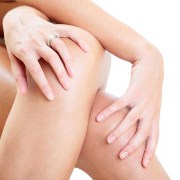Restless leg syndrome (RLS) is a sensorimotor neurological disorder that is thought to affect about 10 percent of the population. It often causes sleep disturbances resulting in sleep deprivation, which affects every facet of a person’s life.
Characteristics of RLS:
Uncomfortable sensations in your legs, feet, or arms that are worse at rest, including crawling, pulling, tingling, and/or gnawing feelings that are hard to describe. These symptoms are temporarily relieved by movement, and worsen with inactivity.
The symptoms are worse at night, and make be associated with periodic limb movement of sleep. Both problems cause leg or arm jerking during the night that wake you up repeatedly, even up to 30 times an hour.
It is not yet known what causes all cases of RLS. Sometimes it is associated with another issue, like anemia, peripheral neuropathy, or pregnancy. It runs in the families of up to half of the people who have it, and may be related to a chemical imbalance of dopamine in the brain. It is more common in women than men, and it tends to worsen with age, although it can occur in children.
There are steps you can take to lessen the effects of RLS, including:
• Cut back on caffeine, alcohol, and smoking
• Have a warm bath at bedtime
• Hot or cold packs
• Exercise regularly, but not near bedtime
• Have good sleep hygiene
• Massage
RLS symptoms can be troublesome enough to require medication. The medications that have been FDA-approved for RLS symptoms both help control dopamine levels in your brain. These are some of the same types of medications used to treat Parkinson’s disease. RLS does not seem to be related to Parkinson’s, and RLS sufferers are not considered more likely to develop Parkinson’s disease. Other medications prescribed for RLS include sedatives, sleeping pills, and sometimes anti-seizure medication.
Over time in some people medications for RLS may become less effective, requiring a change in dosage or a change in the dosing schedule. It may be necessary to add another medication or change medications altogether. Health care providers may prescribe supplements to help relieve RLS symptoms as well. These may include iron, magnesium, or folate.
RLS has been getting more press in recent years, and while this has caused some people to suggest it is not a “real” health problem, millions of sufferers would disagree. If you think you may have symptoms of RLS, contact your health care provider so you don’t have to suffer through sleep deprivation and discomfort.
Resources:
National Organization for Rare Disorders
http://www.rarediseases.org/
National Sleep Foundation
http://www.sleepfoundation.org/
Restless Legs Syndrome Foundation
http://www.rls.org/Page.aspx?pid=471
WE MOVE (Worldwide Education & Awareness for Movement Disorders)
http://www.wemove.org/rls/
Sources:
Mayo Clinic
http://www.mayoclinic.com/health/restless-legs-syndrome/DS00191
National Institute of Neurological Disorders and Stroke
http://www.ninds.nih.gov/disorders/restless_legs/restless_legs.htm






Add a Comment1 Comments
I've had RLS for years and I haven't found anything that's worked to relieve the uncontrollable urges to move. I haven't slept well because the RLS usually acts up at night. I've recently found a cure and I hope that everyone finds out about this because its just absolutely wonderful! Its called Leg Relaxer and I bought it online from a company called Nature's Rite. Its not sticky and it doesn't smell bad. I love it!
May 20, 2010 - 12:27pmThis Comment